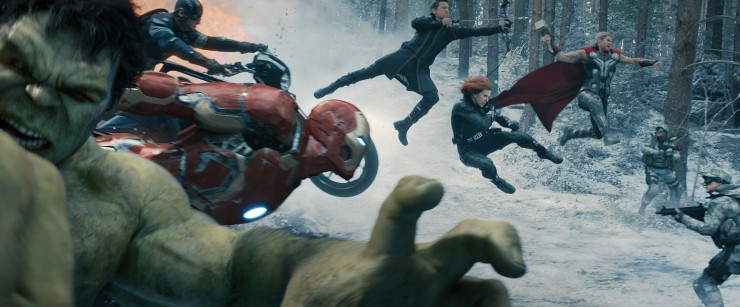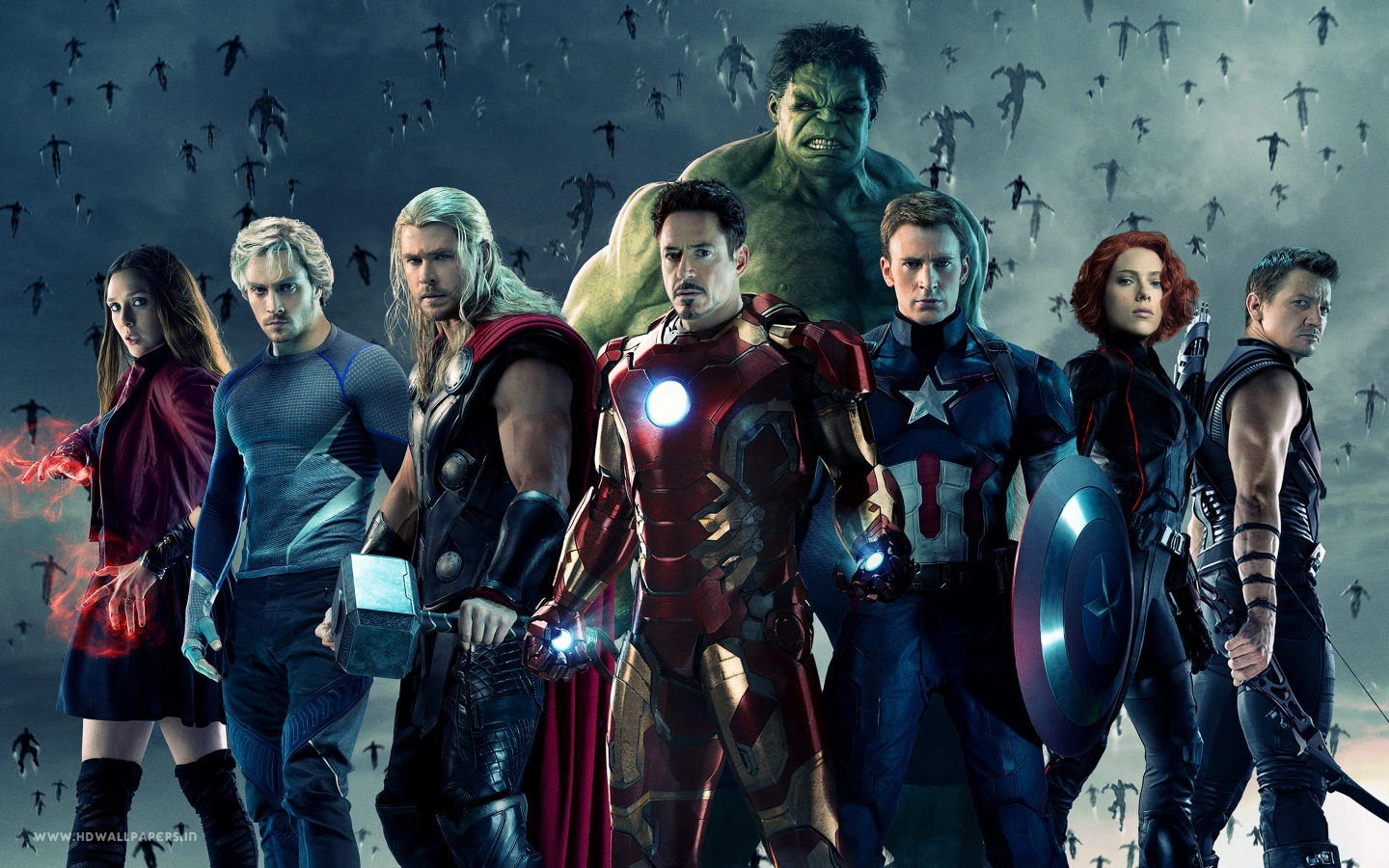A popular maxim says the definition of insanity is doing the same thing over and over and expecting different results. In Avengers: Age of Ultron, our superheroes are rescued from the loony bin only by the happenstance of their script-driven exceptionalism and literal deus ex machina salvation.
I’ll give one thing to Avengers: Age of Ultron – it picks a theme and sticks with it. A lot of other recent Marvel films, like Captain America: The Winter Soldier, raise an interesting idea only sacrifice it on the altar of comic book lore. Age of Ultron is about how superheroes (a metaphor here for Western military and political interventionism) go about saving and protecting the world. In the film’s opening act, we see how the Avengers are despised by people in developing nations, who see their hit-and-run interventions as a mask for American imperialism, and lament the collateral damage left in their wake. We also see Tony Stark’s fear and hubris lead him to attempt to make an AI defense system named Ultron, which backfires spectacularly (as AI experiments tend to do) when it decides – perhaps wisely – that the Avengers themselves are the greatest threat to world peace.

I’m glad that such a massively popular film risked controversy by tackling an interesting and important contemporary issue, even under the guise of spandex bodysuits. It’s to Age of Ultron’s credit that it attempts to deal with this. It’s to its further credit that it doesn’t abandon the issue halfway through the film, but carries it to the film’s conclusion.
It marks the point where the Avengers should probably be dragged away by men in white coats
The problem stems from how the Avengers solve their collective crisis of conscience and remedy the consequences of their careless actions. After creating one disastrous AI, Stark decides the best solution is to create another AI to help them battle the first one. It is, of course, a stupid plan, and marks the point where the Avengers should probably be dragged away by men in white coats, but it works for…some reason. Thor blasts the experiment with some kind of Norse magic, which somehow ensures the outcome will be good. And it is – the experiment results in the creation of Vision, an all-powerful new superhero that’s sort of like a Marvel version of Superman. This blatant deus ex machina solution works, but it really shouldn’t.
Never mind that it’s essentially the same world-saving idea that led to the conclusion of Bill and Ted’s Bogus Journey (think about that for a minute), the creation of Vision as an antidote to Ultron says all the wrong things thematically.
Try harder and hope it will work better next time, because maybe there will be magic
If the Avengers’ problem was that they approached international problems carelessly, rarely sticking around to help pick up the pieces, and over-reaching in their attempts to increase their power and police the world, it undermines the wrongness of those actions to derive the solution from the same actions and motivations.
Looking at the subtext, it implies that the solution to Western nations’ careless interventionism and military/surveillance over-reach is simply to try harder and hope it will work better next time, because maybe there will be magic.

Age of Ultron has severe cinematic problems. The script forces every character to have the same wisecracking personality like they’re all trying to be Starlord. New characters are introduced and dismissed without fanfare. The action is probably well-choreographed but it’s framed so closely, so shakily, and so blurrily that it’s impossible to appreciate the visual splendor. It acts like the events of Iron Man 3 and Captain America: The Winter Soldier were both nothing more than bad dreams. But the biggest misstep is to raise an interesting theme, and even to persist with it through to the end, but to botch its execution so badly.
It makes the Avengers look more than slightly mad, and the subtext makes bizarre implications for Western foreign and security policy. Superheroes can get away with it with the backing of an unimaginative screenwriter who’s ever in their favour. The rest of us aren’t so lucky.


Leave a comment